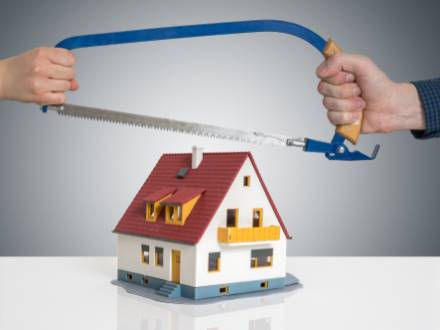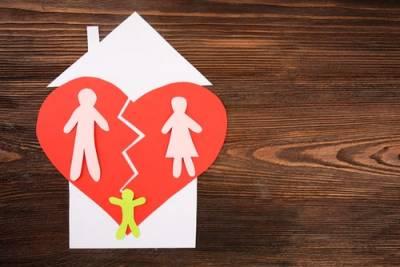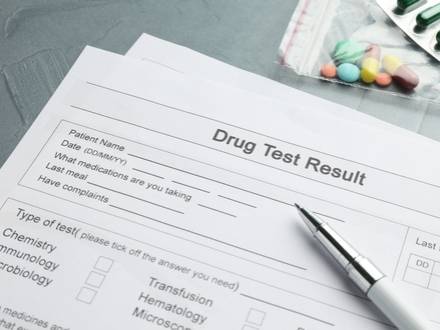Recent Blog Posts
5 Types of Valuable Assets to Address in a High Net Worth Divorce
 Whenever a couple chooses to end their marriage, they will need to address multiple legal and financial issues. High net worth divorce cases can be very complex, especially when it comes to the division of marital property. These couples often own multiple types of high-value assets, and as they determine how to divide these assets fairly, they will also need to understand the financial implications of the decisions they make.
Whenever a couple chooses to end their marriage, they will need to address multiple legal and financial issues. High net worth divorce cases can be very complex, especially when it comes to the division of marital property. These couples often own multiple types of high-value assets, and as they determine how to divide these assets fairly, they will also need to understand the financial implications of the decisions they make.
At Goostree Law Group, our St. Charles, IL divorce lawyers have received over 100 5-star reviews for our detail-oriented, client-first approach. We can help you take inventory of your assets and advocate for a favorable split of property on your behalf.
Five Valuable Assets to Look Out For in a 2026 Divorce
During a high net worth divorce, couples need a complete understanding of all of the assets they own. Spouses need to keep track not only of marital assets acquired during their marriage, but separate property acquired before the marriage as well. Assets that these couples need to address may include:
What Happens to a House if Only One Spouse’s Name Is on the Deed?
 Your home may be one of your most treasured assets in your marriage. However, you may wonder what will become of it in your divorce if your name isn’t on the deed. The answer is complicated, and may hinge on a number of different factors. The important thing to keep in mind is that the name on the deed matters less than when the house was acquired.
Your home may be one of your most treasured assets in your marriage. However, you may wonder what will become of it in your divorce if your name isn’t on the deed. The answer is complicated, and may hinge on a number of different factors. The important thing to keep in mind is that the name on the deed matters less than when the house was acquired.
A Yorkville, IL divorce lawyer can clear up your questions and help protect your interests in the division of property. At Goostree Law Group, our attorneys have been recognized with numerous awards, including recognition as Super Lawyers and among the "10 Best" for Client Satisfaction by the American Institute of Family Law Attorneys, and we are ready to offer tailored legal guidance.
What Makes a Home Marital or Separate Property in Illinois?
In Illinois, the deed is an important document, but it is not the sole deciding factor in ownership. Just because only one spouse’s name is on the deed does not automatically mean the house is "off-limits" in asset division.
4 Common Questions About Parenting Time in Illinois
 When divorcing spouses share children, the divorce process becomes much more complicated. In addition to financial issues like property division, the couple must also address child-related concerns like how to allocate child custody and child support. A DuPage County, IL family law attorney can provide you with valuable insights, addressing any questions you may have.
When divorcing spouses share children, the divorce process becomes much more complicated. In addition to financial issues like property division, the couple must also address child-related concerns like how to allocate child custody and child support. A DuPage County, IL family law attorney can provide you with valuable insights, addressing any questions you may have.
At Goostree Law Group, we know how overwhelming the divorce process can be for parents. When you work with our firm, we will do everything we can to reduce the stress and uncertainty on your end, drawing upon decades of legal experience. Attorney Tricia Goostree has helped numerous families in difficult family law cases, including highly contested child custody matters.
How is Parenting Time Different From Child Custody?
One of the most complicated parts of a divorce is navigating the sea of confusing legal terms and language. In 2026, Illinois law no longer uses the term child custody. Instead, child-related matters are broken down into two parts: decision-making responsibility and parenting time. Decision-making responsibility gives a parent the ability to make important choices on the child's behalf. On the other hand, parenting time refers to the day-to-day care for the child. The parents will include their parenting time schedule in their parenting plan and submit it to the court for approval.
Can Marital Misconduct Affect My Divorce in Illinois?
 With a few exceptions, divorce courts in Illinois generally do not factor in misconduct when deciding how assets should be divided or making decisions about alimony. A St. Charles, IL divorce attorney can help you understand how your specific divorce might be affected.
With a few exceptions, divorce courts in Illinois generally do not factor in misconduct when deciding how assets should be divided or making decisions about alimony. A St. Charles, IL divorce attorney can help you understand how your specific divorce might be affected.
Marital misconduct can be a touchy subject to broach in your divorce. At Goostree Law Group, we are experienced at handling high-stress divorces between spouses. Our careful, client-focused approach has helped us garner a reputation for effective counsel, as we have received over 100 5-star reviews for our successes in and outside of the courtroom.
What is Marital Misconduct?
Marital misconduct is behavior that endangers or undermines the marriage. It means that a spouse behaves in a way that contrasts with how a person is expected to act in a marriage. Common forms of marital misconduct include:
My Spouse is Accusing Me of Child Abuse in Our Divorce to Get Custody. What Can I Do?
 As a parent, being accused of intentionally harming your child can be shocking and deeply offensive. Sadly, some parents will do whatever it takes to gain an advantage in divorce or child custody proceedings, even if it means fabricating allegations of child abuse. Psychiatric Times reports that anywhere from two to 35 percent of child custody cases involve allegations of abuse. This highlights a disturbing trend of people using false allegations of abuse as a tactic to secure more or sole custody.
As a parent, being accused of intentionally harming your child can be shocking and deeply offensive. Sadly, some parents will do whatever it takes to gain an advantage in divorce or child custody proceedings, even if it means fabricating allegations of child abuse. Psychiatric Times reports that anywhere from two to 35 percent of child custody cases involve allegations of abuse. This highlights a disturbing trend of people using false allegations of abuse as a tactic to secure more or sole custody.
At Goostree Law Group, our Wheaton, IL child custody attorneys can help you push back against a false narrative. Attorney Tricia Goostree has over 20 years of experience in family law, including experience in contested custody cases.
Who Pays Credit Card Debt if We Get Divorced?
 As Americans struggle with inflation, supply chain issues, and rising prices, many are turning to credit cards to make ends meet. Credit cards can be a useful financial tool. However, credit card debt can quickly spiral out of control. According to a study by WalletHub, the average U.S. household has around $11,000 in credit card debt. When a household comes apart, that debt will have to be addressed one way or another.
As Americans struggle with inflation, supply chain issues, and rising prices, many are turning to credit cards to make ends meet. Credit cards can be a useful financial tool. However, credit card debt can quickly spiral out of control. According to a study by WalletHub, the average U.S. household has around $11,000 in credit card debt. When a household comes apart, that debt will have to be addressed one way or another.
If you are getting divorced, you may have many questions and concerns about credit card debt. How is credit card debt divided between spouses? Do we have to pay off our credit cards before we can divorce? What if a spouse promises to pay credit card debt and fails to do so? At Goostree Law Group, our St. Charles, IL divorce attorneys can help you address these questions and much more. We have garnered over 100 5-star reviews, so you can trust us to provide you with legal advice and guidance unique to your situation.
Illinois Does Not Recognize Palimony, Shared Property Rights of Cohabitants
 "Palimony" is a term sometimes used after an unmarried couple who lives together has ended a long-term relationship. There are different definitions for palimony because it is not an official legal term. It is just a combination of the words "pal" and "alimony."
"Palimony" is a term sometimes used after an unmarried couple who lives together has ended a long-term relationship. There are different definitions for palimony because it is not an official legal term. It is just a combination of the words "pal" and "alimony."
The basic definition of palimony is that it is the equivalent of spousal maintenance, or alimony, for unmarried couples. Some expand that definition to include each party’s right to shared assets from the relationship.
Illinois family law does not recognize palimony as a right between unmarried couples in 2026 the way it does recognize spousal support as a right between married couples. Instead, you can establish property claims by creating a cohabitation agreement. Our Kane County family lawyers can help.
Can a Divorce Judge Make You Take a Drug Test?
 Divorce cases involving children often raise difficult questions about parental fitness. When one parent suspects the other is using drugs or alcohol, they may ask the court to order drug testing. If you are facing allegations of substance abuse during divorce, understanding when and how judges can order drug testing is important.
Divorce cases involving children often raise difficult questions about parental fitness. When one parent suspects the other is using drugs or alcohol, they may ask the court to order drug testing. If you are facing allegations of substance abuse during divorce, understanding when and how judges can order drug testing is important.
Illinois divorce judges do have the authority to order drug tests when children are involved. If you are worried about drug or alcohol issues in your 2026 divorce, call our DuPage County divorce attorneys for help.
When Can a Judge Order Drug Testing in a Divorce?
Under the Illinois Marriage and Dissolution of Marriage Act at 750 ILCS 5/602.7, courts must consider each parent’s physical and mental health when determining custody and parenting time. Substance abuse falls under the category of "physical and mental health."
Can One Lawyer Handle a Divorce for Both Spouses?
 The CDC estimates that over 650,000 divorces happen every year. By some estimates, around 90 percent of those divorces are uncontested, meaning spouses are able to agree on everything before they file for divorce.
The CDC estimates that over 650,000 divorces happen every year. By some estimates, around 90 percent of those divorces are uncontested, meaning spouses are able to agree on everything before they file for divorce.
If you have recently made the decision to get a divorce, you probably have many questions. How much will divorce in Illinois cost? How long does it take to get divorced? What can I expect from my divorce? All of these questions are a normal part of figuring out the divorce process.
Many people facing divorce also ask themselves whether they really need a lawyer, especially if they want to file for an uncontested divorce. They worry that hiring an attorney will send the wrong message, or increase tension between them and their ex. Can’t you just hire the same attorney to represent both of you in your Illinois divorce?
What You Should Know About Non-Parent Visitation in Illinois
 After your divorce is finalized, you and your family will begin new journeys with a different way of life. When you and your ex-spouse share children, arrangements for parenting time and parental responsibilities must be made.
After your divorce is finalized, you and your family will begin new journeys with a different way of life. When you and your ex-spouse share children, arrangements for parenting time and parental responsibilities must be made.
These new arrangements create routines and lifestyles that may feel unfamiliar at first. While adjusting takes time, these changes often lead to happier and healthier homes for you and your children.
Your family situation may involve other important people besides yourself, your ex, and your kids. Grandparents, stepparents, siblings, and close family friends often play significant roles in children's lives. Understanding who can have visitation rights and how these arrangements work is often an important part of life after divorce or separation. Our Kane County child custody lawyers can explain more.












